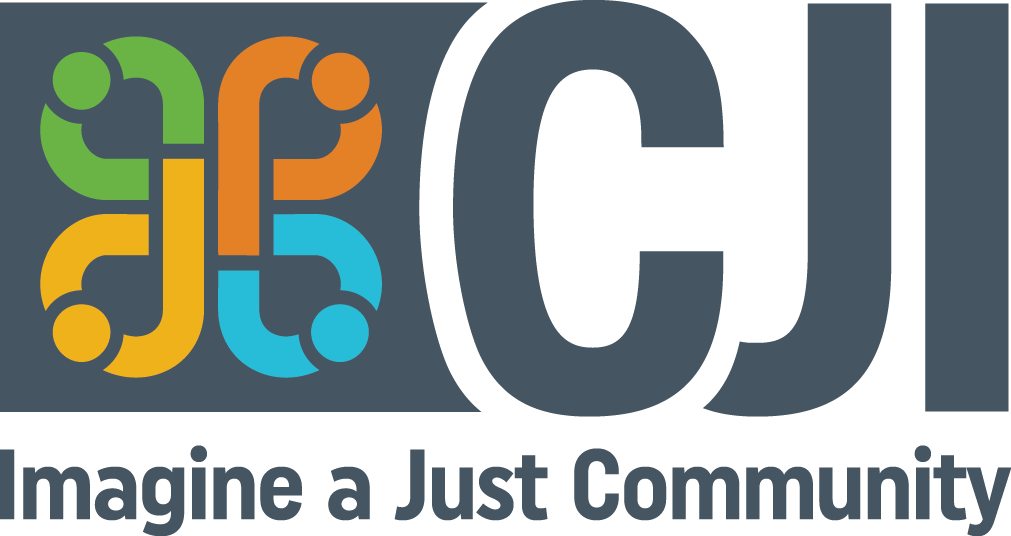Visiting the Inside
Visiting the Inside
“A person is a person through other persons; you can’t be human in isolation; you are only human in relationships.” – Rev. Desmond Tutu
I first meet the Stride volunteers as they slowly fill the spaces of a welcoming room in on a Wednesday evening in Waterloo. This peer support get together is held three times per year. Tonight’s theme is a potluck. The women (and two men) have their choice of home cooked (classic deviled eggs and crockpot lasagna) and store bought delights (an assorted array of sweet treats). There is a distinct and tangible connection floating through the room: the joy of being together and sharing space with each other is unmistakable. The individuals gathered here like each other; they like each other a lot. They share something that far too many of us would consider improbable. They spend one night a week, in prison, fostering our most valued human need…connection. I am here to ask them why. Stride Night, a weekly meet up, held at Grand Valley Institution for Women, is at the core of the Stride’s program model. Stride Night uses shared activities like watching movies, making cards or learning a new language to facilitate relationship building between volunteers and incarcerated women and transwomen.
Becoming a Stride Night volunteer requires more than signing up on a volunteer sheet; it requires engaging in a lengthy, and potentially emotional process. As the Stride Program Coordinator, Kate Crozier, says, “participating in Stride Night requires being comfortable with uncertainty and vulnerability.” This kind of self check-in is best undertaken before one attends their first Stride Night, but the community represented here tells me it’s okay if it doesn’t. The support offered and practiced by the Stride staff and senior volunteers sends the message that process of owning vulnerability is a shared one. We’re a community; we’re in this together.
A Stride volunteer must complete a volunteer interview, complete four nights of Stride training and pay $102.75 for a reliability clearance check. Thus, simply finding the time to complete the process to volunteer for Stride is a considerable commitment. The reliability clearance is the most important step; it involves fingerprinting, and includes criminal record and credit checks. Without reliability clearance, you won’t be permitted to enter into the prison. Volunteers being reliability cleared is crucial to the safety of Stride Night. Enter prison is difficult and Stride ensures, and seems effectively, to prepare volunteers for prison. It also cannot be ignored that the sheer level of commitment required to volunteer for Stride makes it challenging for members of a lower socioeconomic class.
There are no GVI guards in attendance at Stride Night. This speaks to why Stride Night works so well; the evening is anchored by trust and it is important that volunteers understand the consequences for themselves and the incarcerated individuals if that trust is broken or compromised. As Stride Night Coordinator, Alison Harris points out, “A high level of trust has been developed over 22 years and that trust is extended to the volunteers. Unlike other programs in prison, Stride is voluntary for those who attend. It has no requirements. You don’t need to qualify. It is a come as you are environment and we welcome all levels of participation.”
This idea of ‘coming as you are’ is the first thing that stands out to me as the peer support night transitions from the pre-mingle to the sharing. Peer Support opens with a sharing circle and a check-in question. I won’t share the question but I will share the thread that ran through the responses received from a little over 30 people: the freedom to be yourself. This is the idea I choose to explore with Stride’s senior volunteers. There are women and men in this group that have been a part of Stride for just over six months and one as long as seven years. There aren’t many programs that can boast about that level of long-term commitment. I ask the group, “What is about Stride Night that allows you to be yourself?” There is a healthy pause that explains itself with each response.
“It’s a non-judgmental space. We’re just a group of people hanging out and getting to know each other.”
“I don’t think I have ever given credence to the idea of it being in a prison. It is such a unique experience. It’s just a group of women.”
“…the first time someone told me they killed someone it didn’t matter; it didn’t affect the quality of time we would spend together. You’re just human beings playing volleyball together, making cards together, it all goes neutral and they become your friends.”
“All the world falls away. All the pressures and requirements in your life disappear. It doesn’t matter. You show up. You do the activity and who you are tends to connect with somebody.”
“Vulnerability is the secret ingredient. The women in GVI have been stripped of their dignity or their choices. We are vulnerable as well. So we are all counting on the goodwill of others to make the night go well.”
“It was a big decision for me. I knew what I was trying to accomplish for myself. I knew if I could reach out to community I could heal myself. As a father I see that these women could have been my daughters. I have met women where men are behind their situations.”
Stride has two male volunteers that also share their experience and reasons for volunteering for the program. Their presence has had meaningful effect on all the women, both incarcerated and free. Their presence deserves special mention. By simply showing up, the women at GVI are able to interact (many for the first time) with positive masculinity.
There are roughly 44 Stride Nights per year each depending on whether the night falls on a holiday or if the prison is in lockdown. It costs the program just over $200 a week to host Stride Nights. $150 in food and supplies. There are costs to the volunteers as well. The $102.75 paid for the reliability clearance isn’t reimbursed. GVI is located off Homer Watson Boulevard; there is a bus that stops near there; however, it isn’t the safest place at night. So, you likely need a car to get there and cars run on gas which isn’t free.
“Stride does cost me especially when my husband travels. Right now, I am paying $50 for a babysitter. Which isn’t really a cost for me. If it costs, it’s in time. I’m at the program instead of spending time with my family. I want to go and I would pay $50 every week if I had to so I could come.” A volunteer willing to consider spending $2200 in order to attend Stride Night speaks to the effectiveness of Stride’s programming and its therapeutic impact. Yet, it points to something bigger, something Stride has little control over. As the volunteers shared their experiences, they consciously and unconsciously allude to the role the social determinants of health play in their lives and the lives of the women they meet on Stride Nights. If you’re also volunteering in a Stride Circle, supporting a woman’s reintegration into society, there is more training and new costs to consider. There are no halfway houses in the Waterloo Region so Circle volunteers can find themselves driving to Dundas, London, Toronto, Brampton and other cities to support a woman with her reintegration. This costs more time and more in transportation. If you’re connecting with a woman remotely, it requires that everyone has continuous access to a phone or the internet or other means of communication.
“I think many of us come to volunteer in a prison because we understand the social determinants of why people end up in prison. People struggling to make ends meet and trying to be better than their circumstances. I often feel angered by that and immobilised by that. This is one small thing I can do to rail against those social determinants.”
One’s ability to afford the reliability clearance, the time, the transportation, the babysitting and the vulnerability required to volunteer for Stride is an indictment on society that plays out in the program. You need a decent income, social support networks, a safe environment, access to health services, and coping skills to volunteer for Stride. To build a community and support people in prison, you first need to belong to a strong healthy community of your own. The social determinants of health that could keep people out of prison are necessary to visit people in prison. It begs the question: at what point does volunteering become advocacy? By talking about what they do on Tuesday nights, Stride volunteers are dispelling the myths about people living in prison and how these people found themselves there. All the volunteers talk about going to Stride Night just as naturally as they talk about going to the coffee shop.
“I make it a point to say Tuesday night I went to prison. You would be surprised how many people have no idea there is a federal penitentiary in the city.”
“You have a conversation with one person and you see their minds shift when you tell them what you do at Stride and hopefully that person will tell another person and another person.”
“A community of people that get together for a common cause gives some hope and strength. That’s the kind of thing I would like to see beyond Stride.”
The moment a person enters this world, if they are lucky enough, a process begins of fostering human connection. A world begins to take a shape; A community begins to form. We learn the impact of isolation and inclusion before we learn our first word. We learn that we need each other. We need programs like Stride that are committed to the nurturing of human connection.
Written by: Teneile Warren


